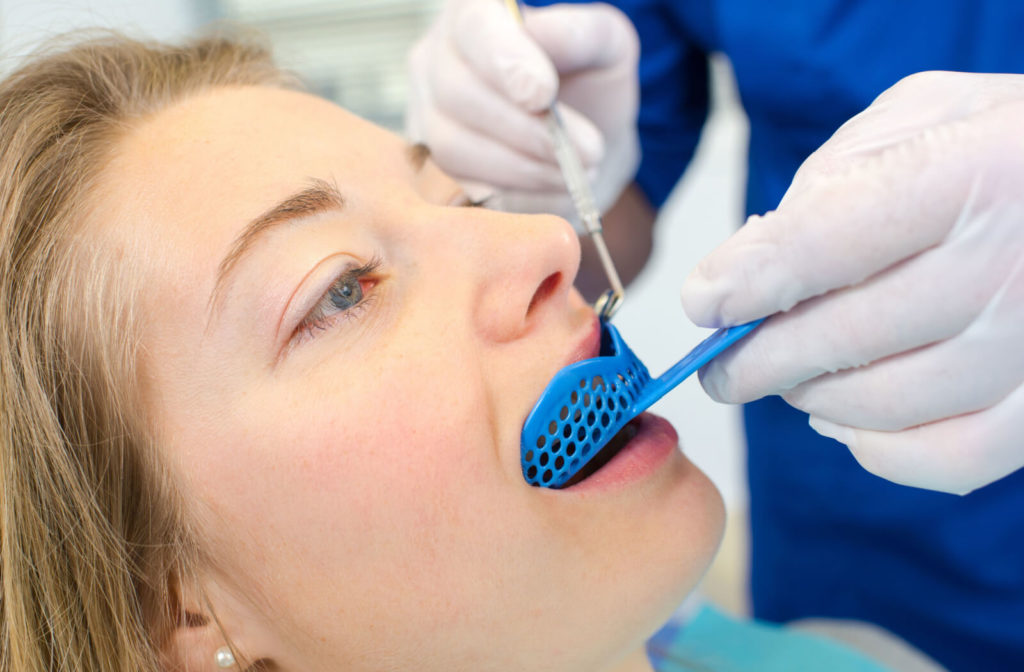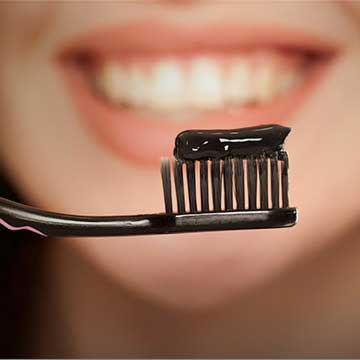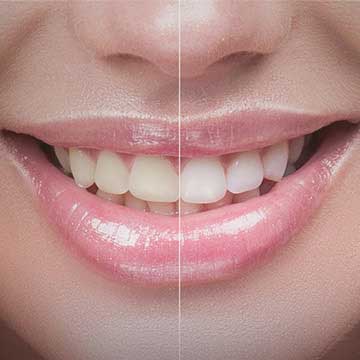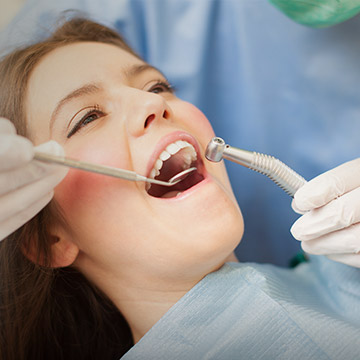Finding the Right Fit
Mouthguards protect your teeth, tongue, gums, and cheeks from trauma—like a wayward slapshot or a rough tumble on the mat. Sports mouthguards are required in many sports, contact and noncontact.
A mouthguard is a dental appliance used to protect dental health, whether you’re enjoying an athletic activity or trying to break a bad habit.
Although a sports mouthguard can help prevent teeth grinding during an activity, there’s a better fit for a long-term solution. So instead, a nightguard is another mouthguard type to consider.
Mouthguard Types
Not all mouthguards are the same, but there are 2 things they have in common:
- Mouthguards are usually worn on the upper teeth. However, if there’s a dental concern or the problem being treated requires it, patients may wear a mouthguard over the bottom teeth.
- Mouthguards are available in all sizes and for all ages. So, even patients with primary teeth (baby teeth) can benefit from a protective appliance.
The differences depend on the type of mouthguard, from what it’s made of to why it’s worn. Athletic or sports mouthguards are designed for short-term wear, protecting your mouth tissue during activities. Nightguards can be worn for longer hours to help prevent sleep apnea, snoring, or tooth grinding.
There are 3 main types of mouthguards:
- Custom-fitted: Your dentist uses a mould to create an impression of your teeth, then uses the measurements to form the mouthguard. The appliance fits comfortably and snugly—a tight fit is crucial for providing effective protection. A custom-fitted mouthguard costs more but is also the highest quality, most durable option.
- Boil-and-bite: Despite the name, the mouthguard should be placed in hot water—not boiling. The heat softens the thermoplastic material. Then, you “bite” the mouthguard and press it around your teeth to create an impression of your teeth. It’s like a do-it-yourself custom-fit but with a less precise system. Unfortunately, the material can become brittle with frequent use.
- Stock: The one-size-fits-all mouthguards are bulky and often fit poorly. Like wearing a pillow instead of a helmet, there’s some protection, but it is limited. Stock mouthguards can also feel uncomfortable and make breathing difficult.
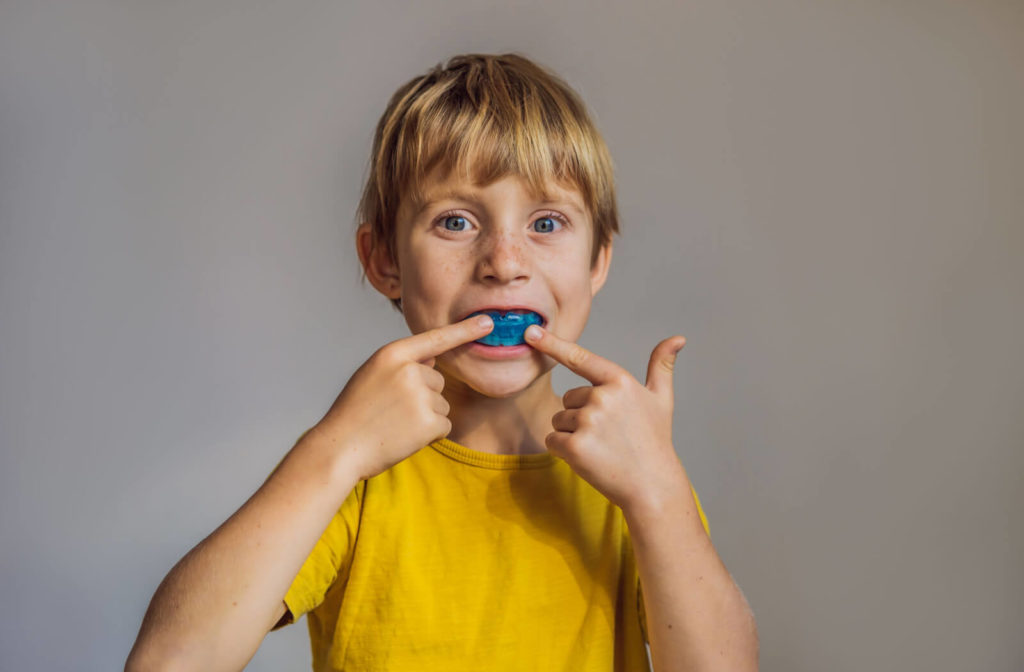
Mouthguard for Bruxism
Sports mouthguards are designed for impact. Although the bulky protection is crucial when expecting a few bumps, it can be uncomfortable to wear for long hours—particularly while you sleep.
Many people grind their teeth or clench their jaw without realizing it. You may clench or grind during a stressful situation or when you’re focusing intensely. But people who grind their teeth often continue the absent-minded habit while sleeping.
Instead of a soft, impact-ready sports mouthguard, night guards for bruxism (teeth grinding and jaw clenching) cover a smaller area of the mouth and are hard.. They’re designed to protect between your top and bottom teeth. Additionally, nightguards only cover teeth surfaces, giving your mouth more room to breathe as opposed to athletic mouthguards that reach the gums.
Risks of Teeth Grinding
Wearing a nightguard is a helpful tool for breaking a bad habit. Teeth grinding and jaw clenching places extreme pressure on your teeth. Over time, the pressure can damage your teeth, such as cracking teeth and chipping crowns or fillings. Damaged teeth can change the appearance of your smile and make eating challenging.
Bruxism can cause tooth sensitivity, aching teeth, facial discomfort, and jaw stiffness. Prolonged teeth-grinding can also strain the jaw, leading to a temporomandibular joint disorder.
TMJ Problems
The temporomandibular joint (TMJ) connects each side of the mandible (lower jaw) to the temporal bone (sides of the skull). The joint is active when we chew, talk, swallow—or grind. The TMJ is one of the most complex joints in the human body, allowing for flexible movement, including rotating side-to-side, forward, and backward.
However, the complexity also means the TMJ can be vulnerable to strain. Overworking the jaw joint, as well as the supporting muscles and ligaments, can cause chronic problems. Temporomandibular joint disorders (TMD) can cause multiple symptoms affecting one or both sides of the face.
Common TMD symptoms include:
- Clicking, popping, or locking of the jaw
- Dental issues (such as worn-down teeth)
- Headaches
- Malocclusion (jaw alignment shift)
- Pain (face, jaw, or neck)
- Reduced or limited jaw movement
- Stiffness in the jaw muscles
- Tinnitus (ringing in the ears)
- Vertigo
Nightguards can help prevent TMJ problems or reduce the symptoms of a jaw joint disorder. A custom-fitted nightguard helps relax the jaw joint, muscle, and ligament tissue overworked by repetitive teeth grinding.
However, people with severe TMJ flare-ups or a locked jaw may need additional treatment to improve comfort. For example, TMJ Botox treatment can relax muscles to help relieve headaches and jaw pain. TMJ surgery is often the last resort for patients with consistently severe symptoms or an inability to open their mouths.
Supporting Your Comfort
It might be tempting to extend a sports mouthguard’s use to help protect your teeth in other ways, but there’s a better solution. Mouthguards are so important, but using the right type of appliance offers the best possible benefits. At Otara Dental, our focus is your dental health and comfort. We can work with you to develop a plan to stop teeth grinding and protect your dental health. Request an appointment today to discuss your treatment plan!


